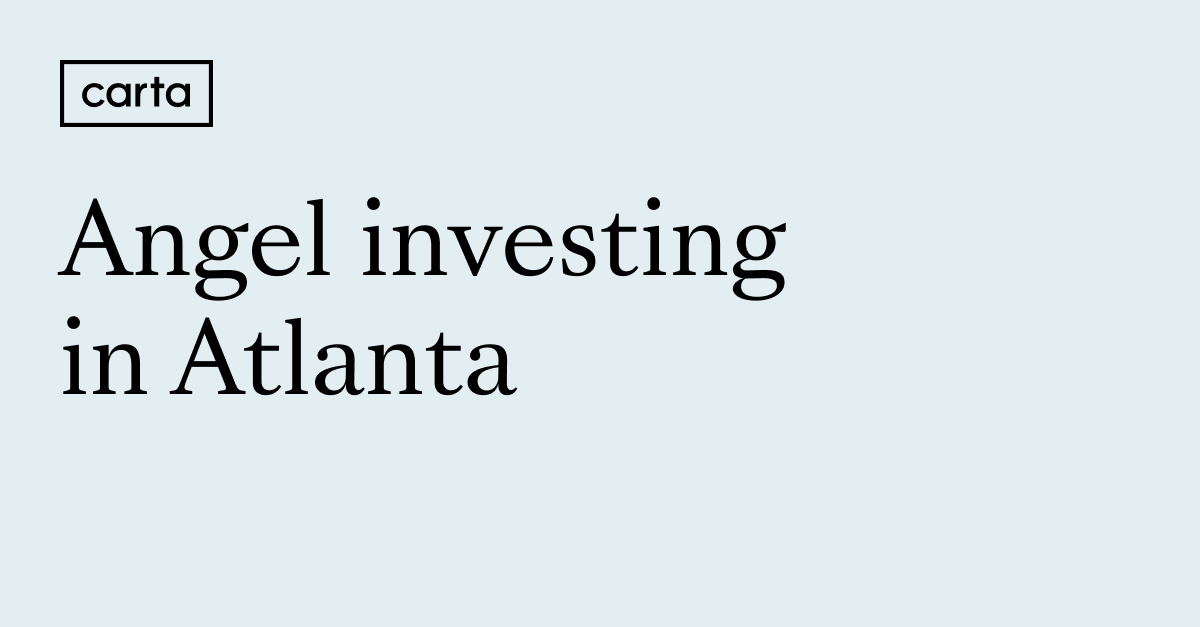Angel investors make the dream of starting a company a reality, and they are fueling Atlanta’s startup economy. The majority of Atlanta’s startups are looking to these angel investors to raise capital: Sixty percent of startups in Atlanta are pre-seed and seed companies, versus 40 percent in the rest of the country.
But becoming an angel investor in Atlanta isn’t easy. Under current SEC rules, most people who are allowed to invest in private companies qualify automatically on the basis of their annual income: Individuals who earn $200,000 annually and married couples earning $300,000 jointly qualify as “ accredited investors,” which means they may invest in private assets—including startups. People with a net worth of more than $1 million also qualify as accredited.
But with median income sitting at $69,000 in Atlanta, versus $126,000 in San Francisco—income is not an equal bar across the country.
In 2020, the SEC recognized that the size of your wallet doesn’t reflect your investing risk profile when it added new pathways to becoming an accredited investor. Regardless of income or net worth, it decided people who hold a Series 7, Series 65, or Series 82 certification are also considered accredited. The problem? Not just anyone can take these tests. Series 7 and Series 82 require the test-taker to be sponsored by a covered financial institution. And for all three certifications, an individual must be held “in good standing” by FINRA or the relevant state authority to qualify as accredited. Accreditation is still an exclusive club.
That means there are simply fewer angel investors in the Atlanta startup ecosystem than there are in places like San Francisco and New York. That matters not only to the investors who lack access to private market returns and a diversified asset base, but also to the companies and funds they would invest in. Angel investment is predominantly local. According to the U.S. Securities and Exchange Commission (SEC), the distance between lead investors and a seed company is just 100 miles. With fewer angel investors in Atlanta, that means fewer opportunities for companies and emerging fund managers to access the capital to build.
Put simply, startups depend on local networks of accredited angel investors to get their businesses off the ground and that network is smaller in Atlanta.
Despite these challenges, the Atlanta metro has become one of the country’s most dynamic emerging hubs for venture investment. For the first quarter of 2023, Fulton County ranked 27th in the nation for venture dollars raised. Atlanta is also a bright spot when it comes to diversity in startups. In Atlanta, 19 percent of startup founders are black, as compared with six percent nationally.
However, to curb the growth of the private markets, the SEC is considering raising the wealth-based thresholds for becoming an accredited investor, making it even harder to find an angel in Atlanta.
Raising the income requirement for angel investors would also worsen income inequality. When you exclude investors from the most lucrative, albeit risky, opportunities, the rich are the only ones who get richer.
Two things need to happen to create fairness and support Atlanta startups.
First, we must expand onramps for more people to become accredited investors. This can be done through tests and credentialing based on financial sophistication that are open to all people and free of charge in order to allow investors to qualify as angel investors regardless of their bank balance. The idea has support. At a hearing this April, bipartisan members of Congress expressed approval of the idea, and in May the House passed a series of bills that would expand ways to qualify as an accredited investor. This is a rare bipartisan effort motivated by policymakers who understand that expanding access helps more people grow wealth and seed the capital that will help innovators in local economies such as Atlanta build their companies.
Second, the Atlanta startup community and the city’s political and business leaders need to engage to ensure the SEC does not advance proposals that, however well intended, undermine the foundation of Atlanta’s innovation economy. Raising the financial qualifications for accredited investors standards would do just that.
To stay up to date on developments in private-market policy, sign up for the Carta Policy Team’s weekly newsletter.
Sign up below to receive Carta’s Policy Weekly Brief:
DISCLOSURE: This publication contains general information only and eShares, Inc. dba Carta, Inc. (“Carta”) is not, by means of this publication, rendering accounting, business, financial, investment, legal, tax, or other professional advice or services. This publication is not a substitute for such professional advice or services nor should it be used as a basis for any decision or action that may affect your business or interests. Before making any decision or taking any action that may affect your business or interests, you should consult a qualified professional advisor. This communication is not intended as a recommendation, offer or solicitation for the purchase or sale of any security. Carta does not assume any liability for reliance on the information provided herein.
All product names, logos, and brands are property of their respective owners in the U.S. and other countries, and are used for identification purposes only. Use of these names, logos, and brands does not imply affiliation or endorsement. ©2023 eShares Inc., d/b/a Carta Inc. (“Carta”). All rights reserved. Reproduction prohibited.

